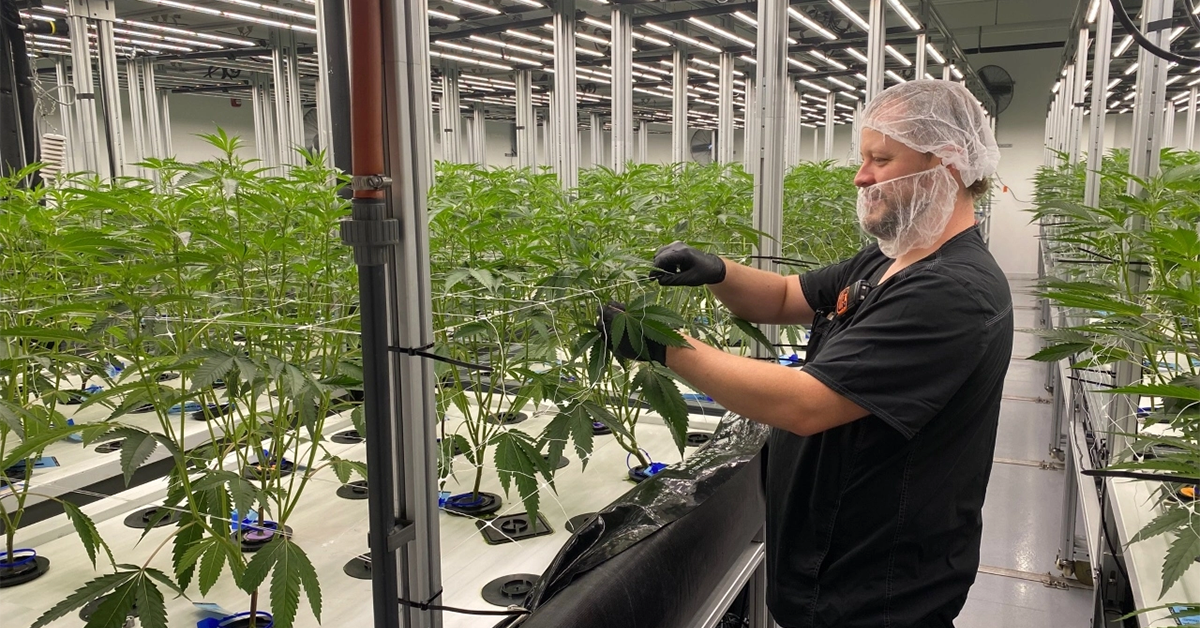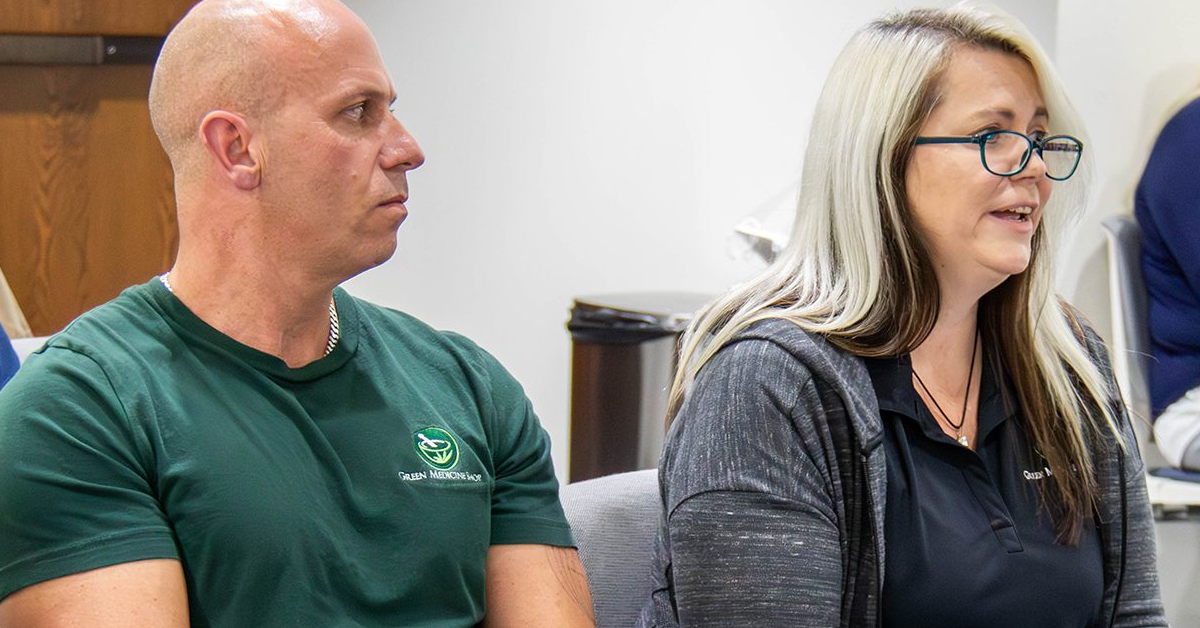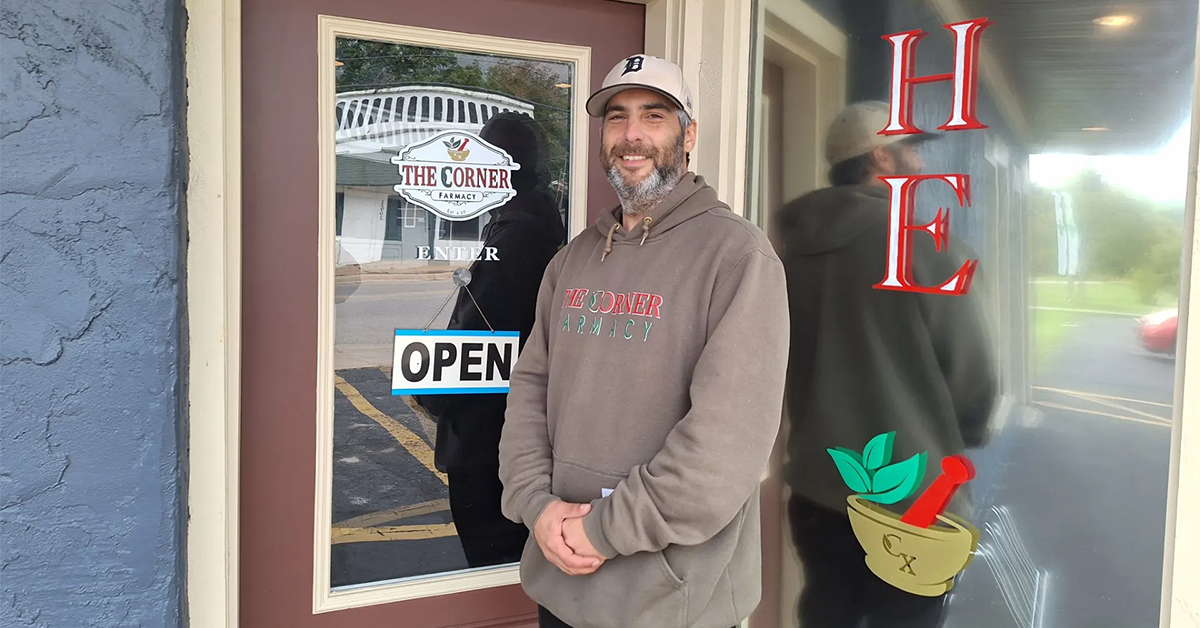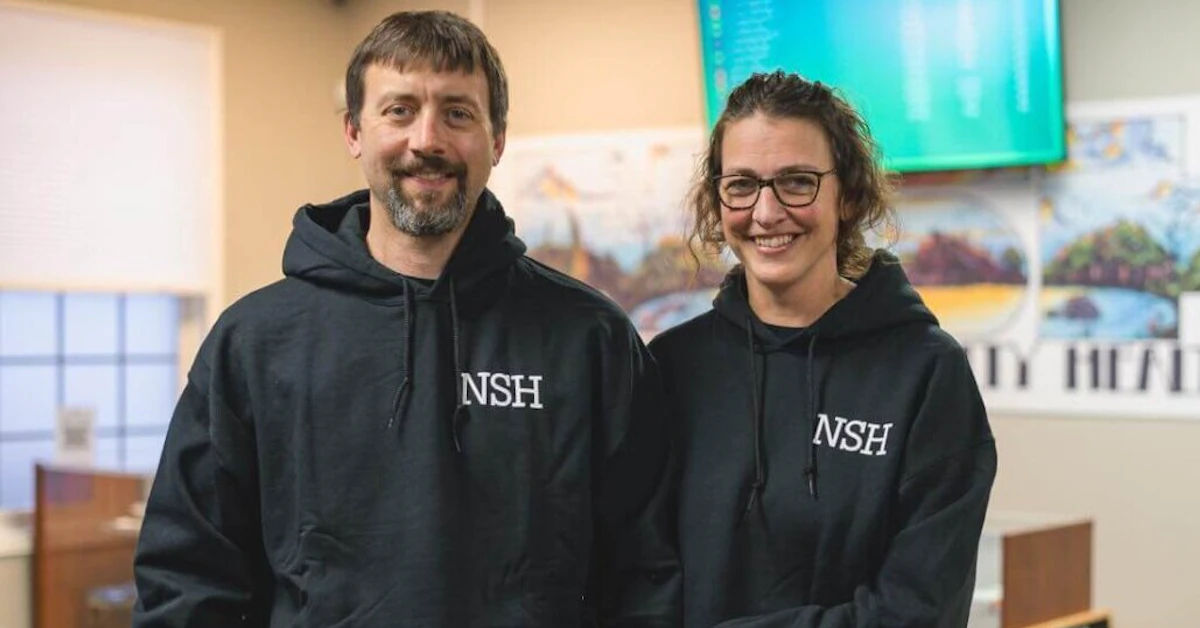Michigan's Aeroponic Marijuana Cultivation: The Future of Cannabis Growth?

In Michigan's dynamic cannabis landscape, growers are eyeing aeroponic techniques as a potentially groundbreaking shift from traditional cultivation methods. Instead of relying on soil-based mediums, such as rockwool or coco coir, aeroponics introduces a system where plant roots, suspended in air, are directly misted with a solution rich in water and essential nutrients.
This method, though revolutionary, isn't merely a novel concept. When married with meticulous environmental controls, aeroponic cultivation pledges not just growth, but accelerated growth. Jim Strain of Dycar Pharmaceuticals, based in Cranbrook, British Columbia, vouches for its efficacy. He states, "Having experimented with a myriad of systems, aeroponics, when flawlessly executed, remains unrivaled in terms of growth speed."
But what does this mean for Michigan's marijuana cultivators? Is aeroponics the next big thing, or just a fleeting trend? As we delve deeper, we'll explore the advantages, challenges, and the potential future of this cultivation technique in the region.
Banking Fairness for Michigan’s Booming Cannabis Industry: The Need for the SAFE Banking Act

Imagine: You're a passionate entrepreneur, ready to launch a business that could employ many and boost the local economy. Yet, doors shut on you when seeking basic financial tools such as construction loans or credit lines. The reason? Almost every institution is backed by the federal government, and you're in the cannabis industry.
Despite cannabis being recognized for its therapeutic benefits and recreational appeal, workers and businesses in the industry face a monumental hurdle: the federal government's classification of marijuana as a Schedule 1 drug. This stance bars national financial institutions from engaging in routine business activities with cannabis companies or their employees in states like Michigan.
However, the perspective on cannabis has shifted dramatically. In Michigan, medical marijuana was approved in 2008 and recreational use for adults in 2018 through public voting. Now, 38 states have either decriminalized or fully legalized medical and/or recreational cannabis.
As Michigan's cannabis sector grows and evolves, there's an urgent need for comprehensive public policy. This policy should prioritize public safety and address the unique demands of this emerging powerhouse in our state's economy. This means enabling cannabis professionals and businesses to access similar financial services as any other lawful industry.
Regrettably, this financial equality remains elusive. It's high time Congress enacted the U.S. Secure and Fair Enforcement (SAFE) Banking Act. Here's why:
-
It would empower states like Michigan, where cannabis is legal, to oversee the industry effectively.
-
The SAFE Banking Act champions Michigan's over $3 billion cannabis industry, ensuring entrepreneurs, their teams, and families can utilize essential financial resources.
-
It would enhance the safety of cannabis businesses, reducing risks associated with cash transactions, such as theft, fraud, or more severe crimes.
-
The act addresses disparities in an industry that continues to thrive. As of July 31st, Michigan proudly stands third in cannabis employment, with 32,819 dedicated workers, according to the Michigan Cannabis Regulatory Agency. This figure is only poised to grow.
However, it's pivotal to understand that the SAFE Banking Act doesn't aim to federally legalize cannabis or modify its Schedule 1 status. Its sole purpose is to prevent financial institutions from facing repercussions for serving legal, regulated cannabis entities.
We urge Michigan's congressional representatives to champion the rights of states with legalized cannabis. By endorsing the SAFE Banking Act promptly, they can bolster business, consumer safety, and ensure equal access to financial utilities, all while preserving the security of our communities.
Medical Cannabis: A Promising Alternative for Neuropathic Pain Relief

A comprehensive study recently revealed the efficacy of medical cannabis in alleviating neuropathic pain, showcasing not only its rapid and long-lasting therapeutic effects but also a better side-effect profile compared to traditional medicines.
The research, undertaken collaboratively by University Medical Center Hamburg-Eppendorf (UKE Hamburg) and telehealth platform Algea Care, delved into the therapeutic impacts of cannabis on patients grappling with chronic neuropathic pain. As reported in the reputable Medical Cannabis and Cannabinoids journal, the study encompassed 99 German participants, aged 20-81.
Medical specialists provided these patients with cannabis prescriptions, and the predominant form consumed was the cannabis flower, containing THC levels ranging from 12-22%. Each patient's daily intake peaked at 1g.
The study methodically assessed several parameters over six follow-up interviews, including pain intensity, sleep quality, overall health, side effects, and treatment tolerance. Comparison metrics used the non-parametric Wilcoxon Rank Sum Test.
Key findings include:
-
Rapid Pain Reduction: Most patients reported severe pain (average score of 7.5/10) at the onset. Remarkably, within a mere six weeks of commencing cannabis therapy, the average pain score plummeted to 3.75.
-
Improvements in Overall Health: At their first revisit, 90% of patients noticed their general health improving. This trend persisted, with 99% of the participants (97 individuals) reporting improvements at some point during the six-month study duration.
-
Positive Response to Treatment: 91% of patients, totaling 279 out of 307 across all follow-ups, expressed a positive reaction to the cannabis regimen.
-
Minimal Side Effects: The study did not record any severe side effects. Mild side effects mentioned were dry mouth (5.4%), fatigue (4.8%), and an uptick in appetite (2.7%).
Interestingly, despite the promising findings, Algea Care highlights that a mere 2% of Germany's doctors prescribe medical cannabis. Dr. Julian Wichmann, Algea Care's CEO, emphasized the study's significance, stating, "Medical cannabis has not just showcased its efficiency but has also proven to have notably fewer side effects in comparison to conventional medicines."
Dr. Wichmann further noted the unfortunate societal stigma associated with medical cannabis in Germany. Nevertheless, an estimated 250,000 individuals across the country have availed of its numerous benefits, ranging from relief for conditions like migraines, depression, ADHD, and chronic pain, to name a few.
Abstract Snapshot: The study affirms medical cannabis as a potent and safe treatment option for chronic neuropathic pain and associated sleep disturbances. Initial pain and sleep scores saw substantial reductions within six weeks, and these positive effects were sustained throughout the study's six-month span. Minimal side effects were reported, with an overall therapy tolerance of 91%.
Greenville's Green Debate: Pushing for Adult-Use Marijuana

For the third consecutive Greenville City Council meeting, Shawnee Bonner, co-owner of Green Medicine Shop—the sole medical marijuana center in the city—has passionately spoken on behalf of adult-use marijuana sales.
Shawnee and her husband, Matt Bonner, launched the Green Medicine Shop earlier this year. On Tuesday, the pair stood before the council with a familiar request: "We urge you to place adult-use cannabis sales on the council's agenda."
Greenville's City Council approved medical marijuana centers in February 2022 after almost a year of diligent planning by the Greenville Planning Commission. This led to the creation of the North Lafayette Zoning District on Lafayette Street, permitting medical marijuana centers to function on properties along M-91.
It was in 2019 when the Bonners first petitioned the council for marijuana provisioning centers. They celebrated the recent transformation of their business, GMS, into a medical marijuana center this past May. Now, their eyes are set on getting the city's approval for adult-use dispensaries, hoping to pivot their business model accordingly.
Despite sanctioning medical marijuana, the council opted out of permitting adult-use sales in 2019, even after the Michigan Regulation and Taxation of Marihuana Act was ratified in 2018.

Shawnee emphasized the dynamic landscape of Michigan's marijuana industry since their initial plea. "Medical cannabis in Michigan is dwindling, while adult-use demand rises," she asserted. Furthermore, she mentioned that in Montcalm County, medical cardholders have dropped from 2,000 to 1,000 since 2019. This, she argues, further justifies the need to consider the transition to adult-use sales.
"Why not Greenville?" Shawnee questioned. "By amending the ordinance, the city could reap economic benefits and cater to a demand that a significant majority of the Greenville residents have voted for."
Notably, the 2018 Marijuana Act received a 58% approval rate in Greenville, which surpassed the statewide 56%.
Highlighting the economic angle, Shawnee cited data from neighboring towns that earned substantial tax revenues from adult-use marijuana. If Greenville follows suit, she believes it could mirror the success of municipalities like Sand Lake, Crystal, and Cedar Springs, to name a few.
Backing her argument with statistics, she mentioned that about $52,000 in tax funds was allocated per dispensary in the previous year. Furthermore, the nearby Belding City Council's recent approval of two adult-use dispensaries strengthens her case.
Appealing to the council's sense of community, Shawnee challenged lingering prejudices and misconceptions about marijuana. She stressed the dangers of prohibition, suggesting it strengthens illegal markets.
In response, council members Jeanne Cunliffe and Larry Moss vocalized their support. Moss, doubling as a Planning Commission member, detailed the meticulous process that green-lit medical marijuana in the past and vouched for its economic promise.
During the council's last meeting on September 5th, Mayor Jeff Scoby hinted at a gradual progression towards considering an adult-use marijuana ordinance.
No further comments were made by other council members or staff.
Wolverine's New Gem - The Corner Farmacy

In 2018, Michigan citizens cast a decisive vote, allowing legal marijuana use for adults. Since then, there's been growing anticipation about how the cannabis industry could blend seamlessly with Michigan's rural economic fabric.
The Northern Michigan towns of Gaylord, Kalkaska, and Mackinaw City have already tapped into this potential, embracing cannabis as an economic driver.
Adding to this list is the village of Wolverine in Cheboygan County. The latest entrant in the local cannabis market is The Corner Farmacy, strategically located on South Straits Highway beside the Wolverine Cabinet Co. This venture is the brainchild of Scott Mann, who secured the location with the help of Brian O'Connor of Wolverine Cabinet.
In a conversation about his venture, Mann stated, "Brian and I have forged a strong partnership. I believe our establishment can contribute significantly to Wolverine, both in terms of job creation and tax inflow."
The placement of The Corner Farmacy, just off I-75, holds significant potential according to Mann. "Given our closeness to I-75, we're in a prime position to attract customers, especially those heading downstate. With our current competitive offers, I believe many will stop by," he expressed.
Highlighting the shop's strategic location, Mann added, "Wolverine is nestled about 20 miles from Gaylord and in close proximity to Harbor Springs, Petoskey, and the Mackinac Bridge. Given our position in this recreational hub, there's a substantial audience to cater to, from daily commuters to those enjoying local recreational activities."
Recounting the journey of The Corner Farmacy, Mann revealed that the idea was initially proposed two years ago. Although he had also considered a consumption lounge, Mann prioritized the retail store. After collaborative discussions with village officials and addressing concerns of a few residents, Wolverine granted the project a thumbs-up.
"We envisioned a venture that would integrate seamlessly into the community, offering employment, and enhancing the local tax base," Mann commented.
Customers can expect a diverse product range at The Corner Farmacy, from widely recognized brands to locally-sourced 'mom-and-pop' goods. Presently, the store welcomes patrons from 9 a.m. to 9 p.m. throughout the week, with considerations to expand the hours based on demand.
On a personal note, Mann admitted that he was unfamiliar with marijuana's benefits until a tragic car accident in 2015. Battling immense pain post the accident, Mann turned to marijuana as a therapeutic aid, averting the need for opioids. "A mere half joint before my physical therapy sessions made a world of difference. It was a game-changer for me," he concluded.
A 'Mom and Pop' Legacy: Celebrating 10 Years of Northern Specialty Health

Nestled amid the breathtaking beauty of Michigan's Upper Peninsula lies a gem not just for nature enthusiasts, but for cannabis aficionados as well. The region, spanning a massive 16,000 square miles, is a beacon for those seeking the tranquil embrace of unspoiled wilderness.
But besides its natural allure, the Upper Peninsula is evolving into a hotspot for cannabis enthusiasts. Post the 2018 legalization, the region now hosts over four dozen licensed dispensaries, accompanied by numerous cultivation and processing facilities. A stark contrast to just a few years ago when Northern Specialty Health was the lone dispensary serving both locals and over a million annual tourists.
Celebrating its tenth anniversary this year, Northern Specialty Health stands as a testament to family-owned business success amid burgeoning competition. Owner Penny Milkey, in an exclusive with Michigan Marijuana News, delves deep into the journey of their "Mom and Pop Cannabis Shop."
Journey into Cannabis
Unlike many in the industry, Penny didn't set out with dreams of cannabis entrepreneurship. She came from a teaching background, while her husband Ryan was an electrician. Their foray into cannabis was born out of necessity after Ryan suffered a severe four-wheeler accident in 2007. Discovering the therapeutic potential of cannabis, they started as medical marijuana caregivers before taking the reins of Northern Specialty Health in 2013. Their mission? Ensuring patients had reliable access to their medicinal needs.
Challenges and Triumphs
For Penny, entering an emerging industry wasn't without its hurdles. Advocating for cannabis acceptance involved attending numerous City Council and Planning Commission meetings. But the effort was worth it. A decade later, with their unflinching commitment to patient welfare over profit, and a strong focus on locally-sourced quality products, the Milkeys have carved out a niche for themselves.
Insights and Favorites
Cannabis in the Upper Peninsula, Penny notes, is distinct from Lower Michigan. Trends take longer to trickle up, maintaining a unique marketplace dynamic. And what's flying off the shelves? Unsurprisingly, flower remains a top choice among Yoopers.
As for personal favorites, Penny is a fan of pre-rolls. Particularly, the infused pre-rolled joints by Element, and strains like Mango Haze by Forté and Mafia Funeral by Redemption.
When asked about quirky strain names, Penny recalls the amusingly named "Adios, Motherf—ers," though she ensures they steer clear of anything too controversial.
Celebrations & Exclusive Offers
This December promises to be a month-long celebration for Northern Specialty Health's decade-long journey, with exciting promotions on the horizon.
As Penny fondly notes, visitors to the Upper Peninsula seeking a genuine, homegrown cannabis experience will find no better haven than Northern Specialty Health in Houghton. It's not just about the product; it's about the heart behind it.


 Helpful Links
Helpful Links